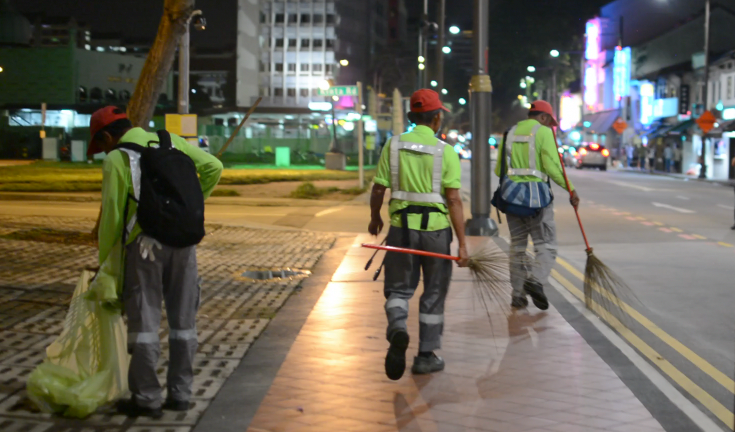The following is an excerpt from Yawning Bread
Alex Au/
Best shot was Chee Soon Juan’s. After Michael Palmer of the People’s Action Party (PAP) said that the way his party approaches the problem of the poor was to be provide targetted assistance and that the PAP did not believe in across-the-board subsidies, Chee interjected, reminding the audience that it’s a different story for ministers — they get their form of across-the-board subsidies. Chee was referring to the highest salaries in the world that Singapore pays cabinet ministers.
This was among the rare cutting responses I heard in the two-hour forum held at the National University of Singapore on 23 March 2011, with four political parties represented on the panel. Besides Chee of the Singapore Democratic Party (SDP) and Michael Palmer, there was Sylvia Lim of the Workers’ Party (WP) and Kenneth Jeyaretnam of the Reform Party (RP). It was moderated by Joshua Thomas Raj.
Unfortunately, many of the points made through the session were similar to those made in the 2006 election and earlier. We seem to be rehashing old ground, and it led me to wonder if this could only mean we’d get the same old result when the polls close.
The theme given to the speakers was: What’s at stake?
Sylvia Lim argued for voters to recognise the importance of a stronger opposition presence in Parliament. Her chief point was this: In case the ruling party declines in competence, where is there an opposition party which can take over the reins of government? In her usual honest and modest self, she told the audience that the WP is not ready, and to be ready, it would need greater parliamentary experience and depth of resources that follow, and that can only come when voters vote the Workers’ Party in wherever they stand for election.
She also took aim at the PAP’s claim that the next generation of leaders, including a future prime minister, would likely be among the batch of new candidates they are currently introducing. Yet, she said, the PAP do not place rookie candidates in singe-member constituencies, but embed them in 4-, 5- or 6-man teams for group representation constituencies (GRC). Is a GRC a good method for inducting a new prime minister, she asked, her question underlining the impossibility of knowing whether this man really had people’s support.
Michael Palmer (PAP) said what’s at stake this coming general election was that the next leadership would emerge from among PAP’s candidates. He brandished this oft-repeated PAP point without any attempt to deal with Sylvia’s earlier point about impaired legitimacy when candidates stand in GRCs. Palmer quickly went on to talk about how the next parliament will see different dynamics, with at least 9 non-PAP members (whether non-constituency — NCMP — or fully elected) and 9 nominated members of parliament.
Click here to read on.
To see TOC’s photos of the event, click here.




